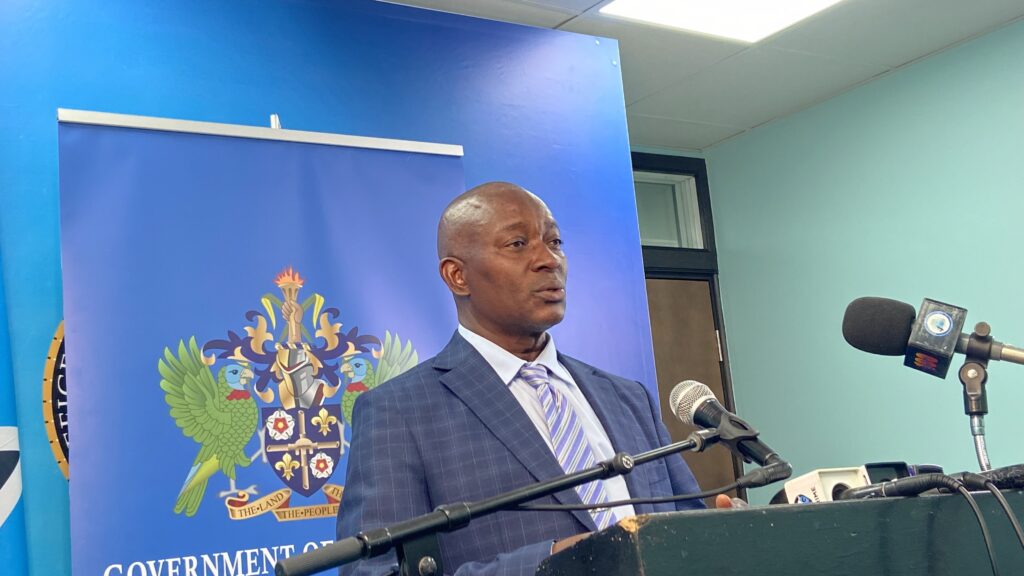The Saint Lucian government is mobilising resources to combat a worsening sargassum invasion, with a newly established task force and Cabinet set to address solutions.
As thick mats of seaweed choke coastlines, even in areas previously unaffected, officials warn of significant risks to tourism, health and coastal livelihoods.
Minister of Agriculture, Fisheries, Food Security and Rural Development, Alfred Prospere confirmed the formation of an inter-ministerial task force and the acquisition of cleanup equipment through partnerships with the United Nations Development Programme (UNDP) and Japan.

“We were able to secure some funding through the UNDP to secure some pieces of equipment to assist us with tracing the problem,” he said. “What I know is that some of this equipment, like a small tractor, a dump truck, and I was told also about two boats—those are able to assist us in the problem.”
Cabinet ministers were due to meet this week to review short-term mitigation strategies, including cost assessments for emergency beach cleanups. “We are putting together a costing from [the] Fisheries [Department] and my ministry… and we hope to present something to the government on how we can address the problem in the short term,” Prospere explained. “There must be some action taken to address it.”
The seaweed’s unprecedented spread—now affecting the east, west, and even previously untouched northern coasts—has raised alarms.
“This is not only a Saint Lucia problem, it is a problem for many parts of the world,” Prospere said. “It is cause for concern because it has implications for our tourism sector. It also has implications on health… the stench has been a major cause of concern for the residents.”
Prospere noted that regional observations, including during a recent trip to St Vincent, confirm the scale of the crisis.
“I flew to St Vincent two weeks ago, and I saw quite a bit of sargassum out in the ocean,” he recalled. “So this problem is not just a problem that we can go to the church and say we are going to clean the beaches and expect that in the next three months we will not have it.”
While some farmers repurpose the seaweed as fertiliser, Prospere cautioned against unchecked use due to heavy metal contamination. Meanwhile, coastal residents and tourism operators grapple with noxious odours and costly cleanups.
“What is most concerning to us is the stench,” Prospere said.
With hotels in the north conducting their own cleanups, the minister acknowledged that “obviously, it definitely would be a serious impact.”
As Cabinet prepared to deliberate, Prospere stressed urgency: “As a government, we have to be concerned about the people that are concerned. It’s really vital. We cannot allow this to continue without action.”




